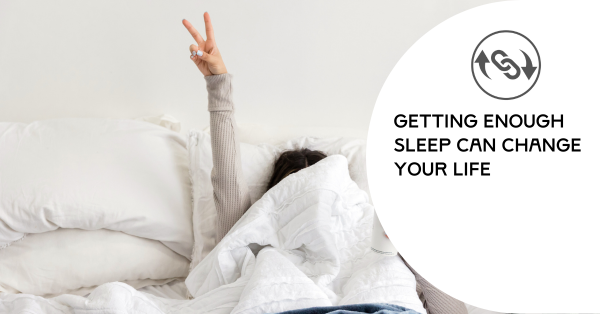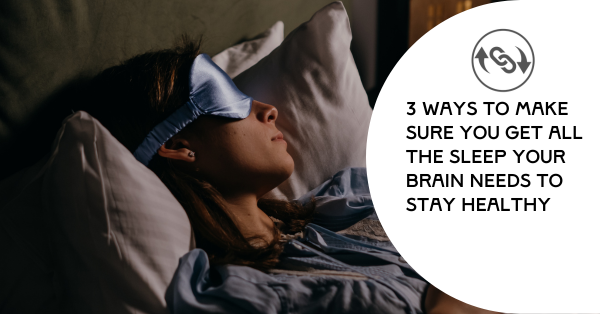Sleep
People consume information in different ways.
Some prefer the written word. Others images and videos.
This page was compiled to offer both.
It is based on the text from a pre-made piece (3 Word documents) made by a third party on the subject of sleep.
The text below is the same as that used in the videos.
Depending on your screen size the videos will be to the left or below the text at the bottom of the page.
The video format (“kolumnovalinta format”) enables you (i) to have them to play automatically in sequence, (ii) pick which to watch and (iii) choose whether to watch in compact or full screen mode.
Getting Enough Sleep Can Change Your Life

If you regularly skimp on sleep, or maybe don’t sleep well, it may be time to change your sleeping habits.
Getting a good night’s sleep is important because the amount and quality of sleep you get can profoundly affect your life.
And you may not realize just how much getting enough sleep could change your life.
It may not seem like getting enough sleep is a big deal.
After all, who cares if you are a little bit tired at work?
Well, there is a school of thought, that not getting enough sleep can cause considerable damages to your health.
Not getting enough sleep has been tied to an increased risk of heart disease, obesity, stroke, and diabetes—all of which are dangerous conditions.
And it isn’t just your physical health that suffers—because your mental health can suffer too.
Not getting enough sleep can make you more prone to conditions such as depression and anxiety, both of which can negatively affect your life.
Now that you are aware of the potential problems associated with not getting enough sleep, you’re probably wondering how sleep can change your life.
One of the number one ways getting enough sleep will benefit you is that you will have better relationships with others.
When you are constantly tired and short on sleep, this can lead to you being short-tempered with those around you.
This short-temperateness can lead to problems in both romantic relationships and friendships.
When you start getting enough sleep, those around you will probably notice your mood shift and be much more willing to spend time with you!
Besides just improving your health and relationships, getting enough sleep can help you further your career.
This is because career success goes hand in hand with building relationships.
It’s hard to build relationships at work if you are grumpy or constantly tired.
Also, when you are tired, you won’t work as efficiently.
Once you are getting enough sleep, you will have better work relationships and get things done faster—the combination of which will change your career—for the better.
Overall, it can be difficult to prioritise sleep, but it needs to be done.
When you get enough sleep every night, you improve your health, relationships, career, and ultimately your life!
So if your circumstances allow – start thinking about the role sleep plays your life.
Surprising Ways Getting Enough Sleep Makes Your Life Better

You’ve probably read about how important it is to get enough sleep.
And you know how bad you feel the next day after a sleepless night.
But you may not realise how much your sleep affects the deep systems of your body.
Without enough sleep, you’re [potentially setting yourself up for a range of poor health outcomes, from depression to diabetes.
Getting your full seven to nine hours of good sleep can have an enormous range of surprising benefits.
Studies have shown that your brain functions much better on regular restful sleep.
Sleep is the downtime your brain needs to do essential chores like consolidating memories, processing emotions and recovering from the days processing.
You need to be performing at your best at work, and for that, you need to have your brain operating at its top capacity.
REM sleep is necessary to be able to solve problems and come up with innovative solutions.
As you spend only 20% of your sleep time REM sleep, you need to make sure you get enough sleep overall to get your full dose of REM.
Scientists have found that chronic sleep deprivation affects the functioning of your genes.
Sleep is necessary for proper gene function including the genes that influence your immunity, inflammation and how well you deal with stress.
Sleep is super important for the production of collagen which is crucial for skin repair and cell renewal as well as skin hydration.
Not getting enough sleep sets you up for premature skin aging, as you’re not producing enough collagen.
Your skin also needs sleep to recover from sun exposure. So, do your skin a favor and get some sleep!
Getting enough sleep is crucial for the body’s cells to renew and repair.
All of your body’s systems use the downtime of sleep to recalibrate and process, getting rid of waste products and strengthening cell walls.
Your immune system can recharge and prepare itself better to fight off disease and illness.
Your body will be in much better shape to deal with the stresses of the day.
Even if you’re finding it difficult to get a full eight hours, science has found that regular cat naps to supplement your night’s sleep can help.
Harvard researchers found that the risk of heart disease was reduced by thirty percent by having daily siestas.
3 Ways to Make Sure You Get All the Sleep Your Brain Needs to Stay Healthy

It seems like insomnia is a modern epidemic.
Whether you deal with insomnia or you are chronically sleep-deprived, it’s likely that poor sleep is affecting your performance.
Sleep deprivation feels terrible.
You will have noticed that if you’ve had a bad night’s sleep, you feel sluggish, heavy, and slow, as though you’re trying to walk through syrup.
You’re clumsy and confused, you drop things, and nothing seems to go right.
As well as making you feel bad, a chronic lack of sleep can have physical effects on your brain.
Sleep deprivation impairs your ability to process and store memories and can even increase your risk of Alzheimer’s disease.
Two proteins associated with Alzheimer’s, beta amyloid, and the tau protein, increase with chronic poor sleep.
There is some evidence in laboratory tests on mice that sleep helps to clear these proteins from the brain.
The good news is that there are things you can do to improve your sleep health to keep your brain in tip-top shape.
Everyone has their own individual sleep needs.
Famously, British politicians Winston Churchill and Margaret Thatcher needed very little sleep.
But only getting four or five hours a night is not recommended for most people.
Whether you need seven hours or ten, find out what is enough sleep for you.
Enough sleep means waking up without needing an alarm, feeling rested and energetic, and not needing coffee to get you through the day.
Studies have shown that the hour or two before bedtime has a powerful effect on the quality of your sleep.
Schedule in some proper downtime, and stop using blue light-emitting devices like smartphones, computers, tablets, and television an hour or so before you plan to go to bed.
Read a book, take a relaxing bath, or listen to calming music—or all three—instead.
If you can’t sleep after ten minutes, get out of bed and do something else.
Lying in bed, getting stressed because you can’t sleep is a recipe for poor sleep and insomnia.
You’re also likely to start brooding, mulling over problems or running over the events of the day.
Get up do something relaxing like reading or meditating until you feel sleepy. It’s okay to do this more than once, even multiple times.
You’re trying to train your brain to think of bed as a sleeping place, not a thinking place.
Improving your sleep will help you to feel calmer, be more productive, and may lower your risk of Alzheimer’s later in life.